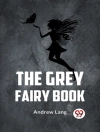In ‘Brownlows, ‘ Mrs. Oliphant weaves a rich tapestry of Victorian society, exploring themes of class, morality, and the intricacies of human relationships. Through her elegant prose, she breathes life into a cast of complex characters, notably the titular Brownlow family, who navigate the challenges of social expectations and personal aspirations. The novel is marked by its keen social commentary and psychological depth, underscoring Oliphant’s prowess in capturing the nuances of domestic life and the tensions within familial bonds, all set against the backdrop of 19th-century England. Mrs. Oliphant, a prominent figure in Victorian literature, was known for her sharp insights into social dynamics and the female experience. Her own background as a woman of the period, often constrained by societal norms, informed her literary voice and desire to portray the lives of women and families authentically. Her extensive experience in writing novels, biographies, and essays reflects her commitment to addressing the complexities of her time, making her an insightful chronicler of Victorian life. ‘Brownlows’ is a compelling read for those interested in the subtle interplay of personal and societal pressures. Oliphant’s skilled narration and rich character development invite readers to reflect on the universal struggles of identity and belonging. This novel is a valuable addition to the canon of Victorian literature, offering modern readers an engaging glimpse into a world not so different from their own.
Mengenai Pengarang
Margaret Oliphant Wilson Oliphant, known professionally as Mrs. Oliphant, was a prolific Scottish novelist, biographer, and critic, born on April 4, 1828, in Wallyford, East Lothian. Her literary career spanned over a half-century, during which she penned more than 120 works encompassing domestic realism, historical fiction, and tales of the supernatural. A prominent figure in Victorian literature, Mrs. Oliphant is well-remembered for the rich portrayal of character and society in her narratives. Her novel ‘Brownlows’ is a testament to her narrative prowess, presenting a keen reflection on social issues and morality through the lives and trials of its titular family. Mrs. Oliphant’s literary style is marked by a blend of wit and keen observation, enabling her to convey the subtleties of middle-class life. She was a contemporary to Charles Dickens and shared with him a concern for the portrayal of family and social dynamics, though her perspective was distinctively shaped by her experience as a woman and a widow tasked with supporting her children after the death of her husband in 1859. Mrs. Oliphant dynamically engaged with Victorian themes, which reflected the complexities of her personal life. Oliphant passed away on June 25, 1897, leaving behind a legacy as a resilient author whose work continues to offer insights into 19th-century British literature and society.












